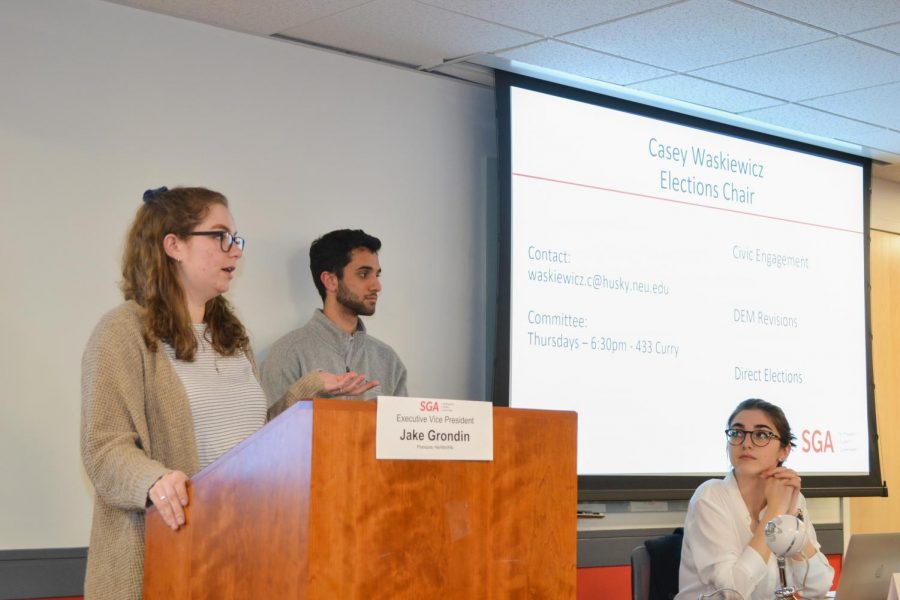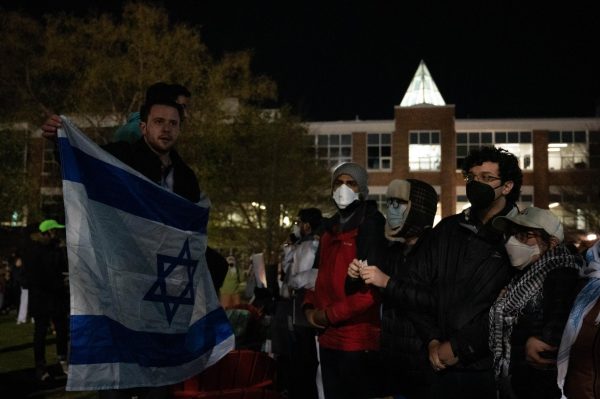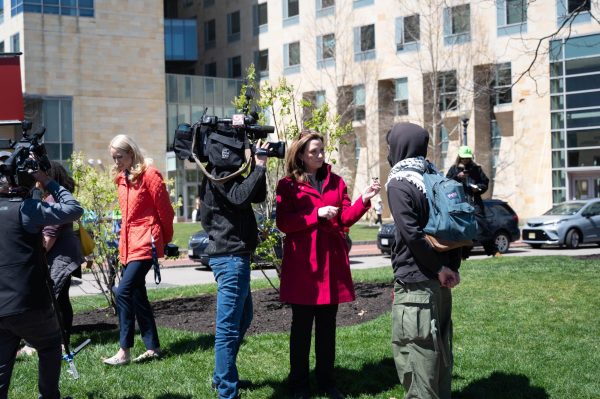SGA adds abstain option to upcoming elections ballot
Casey Waskiewicz is the chair of SGA’s Election Committee.
March 20, 2019
Following last year’s election, which saw around 1,000 “no confidence” votes out of the 8,000 total votes cast, the Elections Committee of the Student Government Association, or SGA, will implement an “abstain” option in the upcoming presidential elections ballot, according to the committee’s chair Casey Waskiewicz.
“Last year, the elections results were a little startling for us,” said Waskiewicz, a second-year political science and international affairs major.
For the election to be verified, 20 percent of the undergraduate population needs to vote. Unlike the “no confidence” vote, the “abstain” votes will not count toward the 20 percent. If the SGA does not receive the sufficient percentage within the voting period between April 7 and April 11, the student body will be given five more days to vote.
In the case that the 20 percent is not achieved in the extension period, or that the ballot reveals more “no confidence” votes than the slate, the vote will go to the SGA senate, where a two-thirds majority is needed to elect the slate.
“No confidence” means that voters do not believe that the running slate is qualified for the SGA position, and “abstain” will mean that voters chose to forfeit their input. In last year’s system, students had to pick between the slate and “no confidence” in order to vote for referenda.
Waskiewicz said she believes many students were forced to vote “no confidence” due to their bigger interests in voting for the referenda.
“Obviously, people were voting no confidence because they had no confidence, so we didn’t want to get rid of it completely,” Waskiewicz said. “But we thought a lot of people were using no confidence in place of an abstention.”
Waskiewicz also said that the abstention option will be a good opportunity to evaluate public opinion.
“If I still see those numbers, I think that’s something that the association should take very much into consideration as this is the one big platform that the student body has to voice their opinions,” Waskiewicz said. “If two years in a row, we have a high percentage of no confidence votes, the students are trying to tell us something.”


















